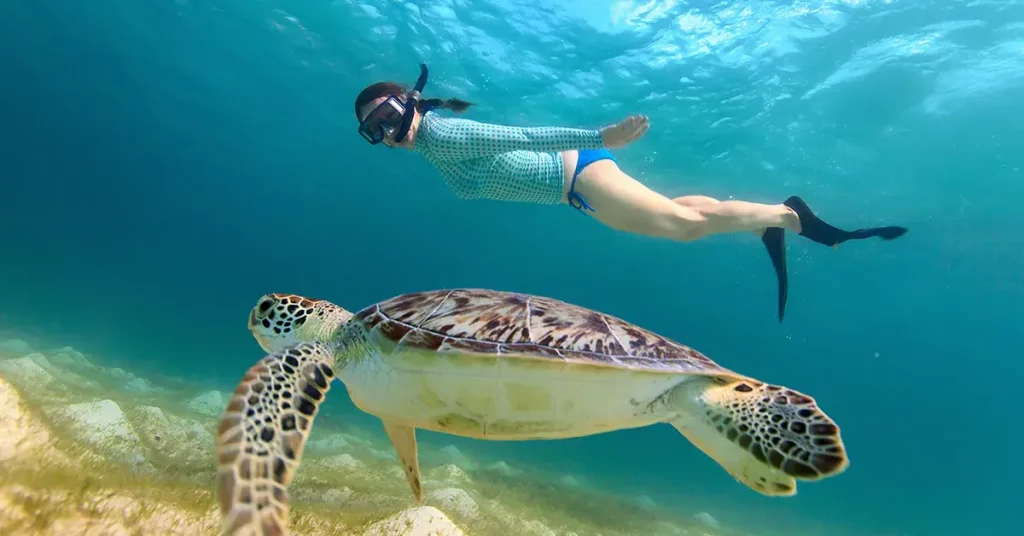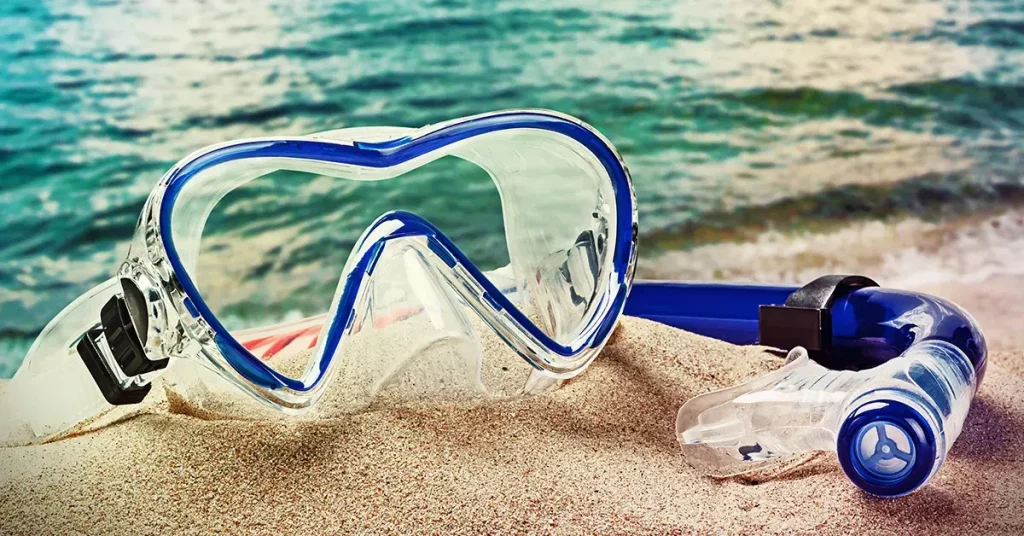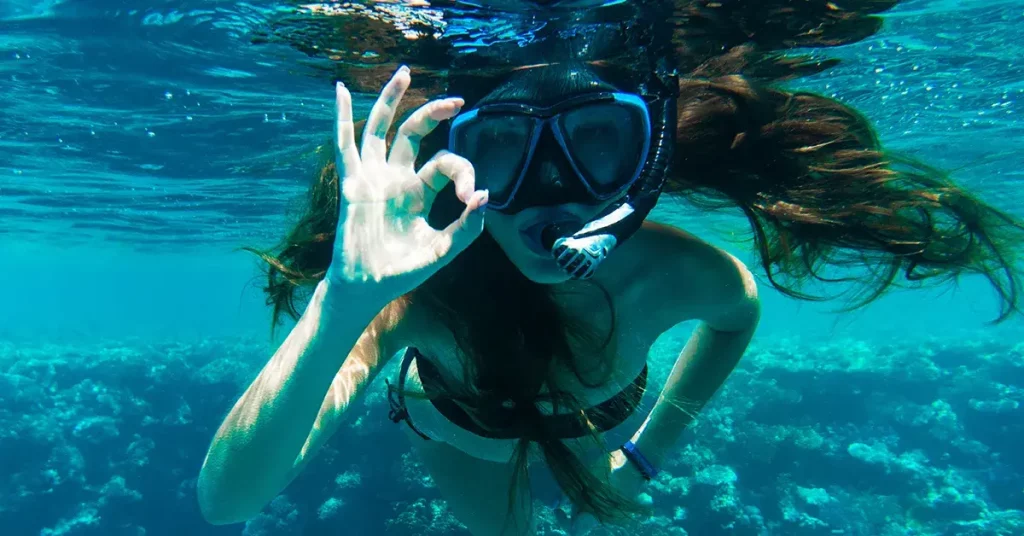Many people enjoy swimming, and one of the many ways to explore what lies under the surface is snorkeling. Unfortunately, snorkeling goggles, and vision underwater in general, can be inconvenient to wear and see through if you require prescription glasses to see properly.
Luckily, there are many methods to counteract this so that you can see with your mask and properly enjoy the experience of snorkeling.
Continue reading to learn about snorkeling and a few ways you can enjoy snorkeling even if you need to wear glasses to see.
What Is Snorkeling?
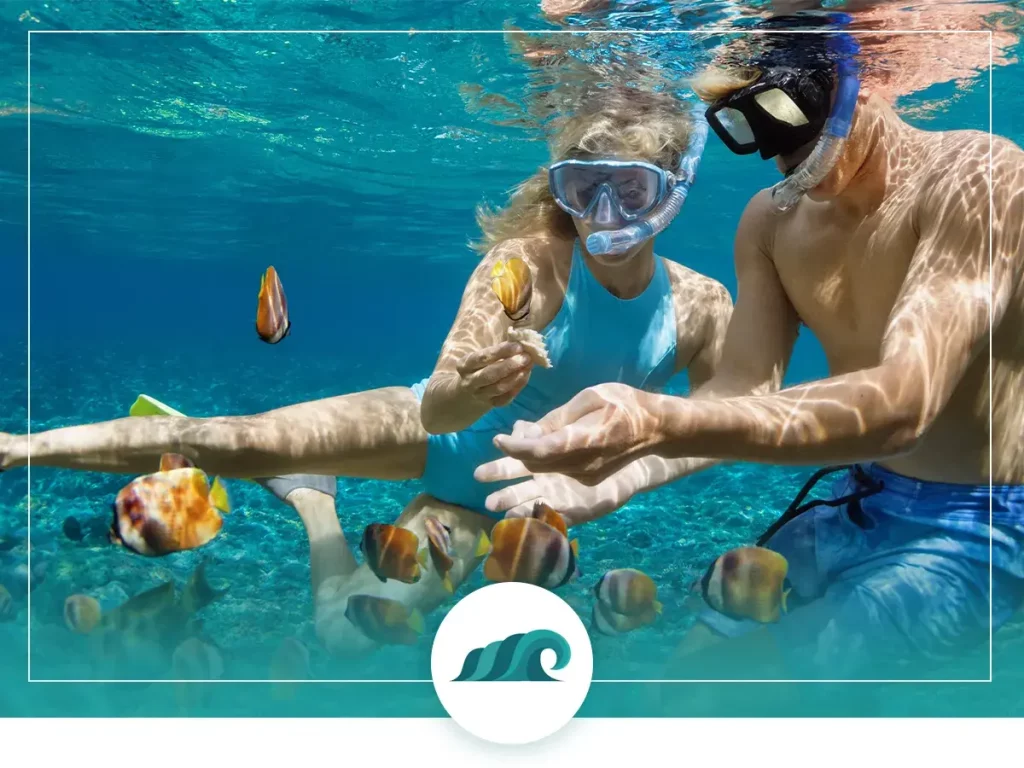
Snorkeling is a form of swimming and subsequent diving where the swimmer is faced down in the water with a pair of goggles and a snorkel. A snorkel is a pipe-shaped device that allows the swimmer to breathe air freely while facing down on the surface of the water.
A snorkel device can either be a separate piece or latched onto the goggle mask. The snorkel is commonly in an ‘L’ or ‘J’ shape as it attaches to the mouth and bends around the head to filter air.
A snorkel is designed to fill with water once the swimmer dives. When the swimmer resurfaces, the swimmer can expel the water from the snorkel with a sharp exhalation of air; this is called blast clearing.
It should be noted that certain types of snorkels create respiratory dead space as some of the exhaled air will get inhaled. This leads to a build-up of carbon dioxide in the body which can lead to hypercapnia.
The risk of hypercapnia can be counteracted by taking deeper breaths, and certain types of snorkels are also better at reducing carbon dioxide build-up.
Snorkeling with Glasses
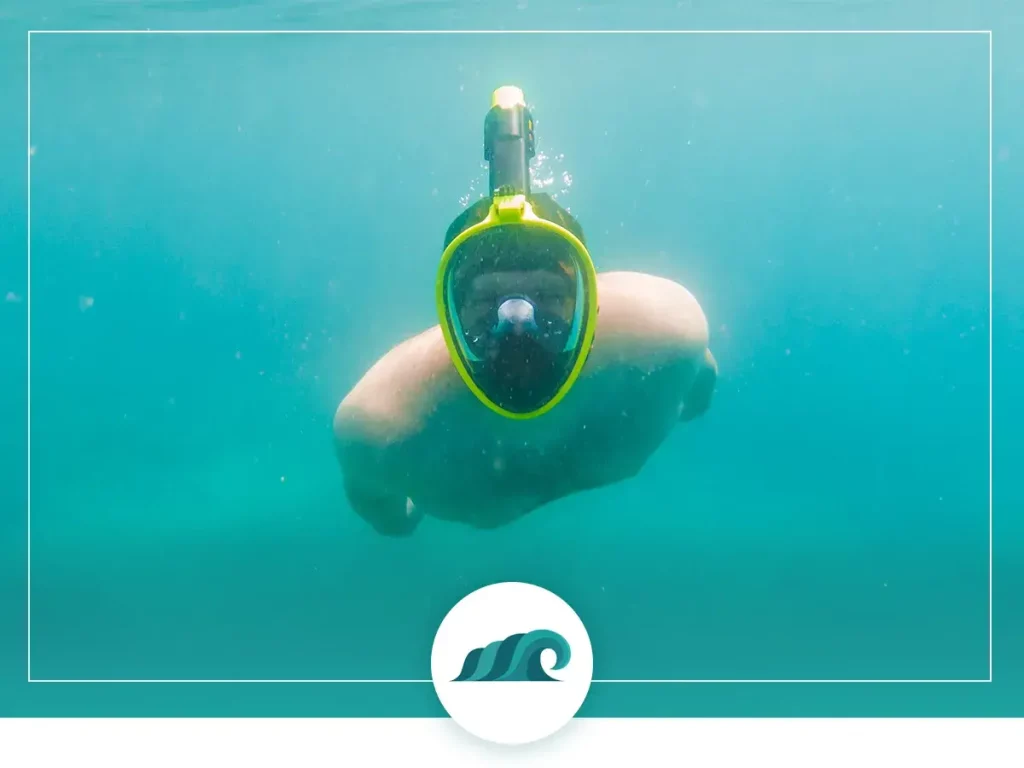
Snorkeling with glasses is a concern many potential snorkelers share. However, one of the goals of snorkeling is to observe the underwater world below you, which is subsequently easier when you can see.
Sadly, it’s not practical to wear your prescription glasses under a snorkeling mask because the ear pieces will likely cause your goggles to flood with water. Considering this, here are some alternatives to consider when snorkeling.
Are Your Glasses Necessary?
While snorkeling for glasses wearers can be difficult, depending on the prescription for your glass, you may not even need them in the first place. While underwater, your vision is magnified by about 25% when using goggles.
This magnification occurs because the air trapped inside the snorkeling mask is far less dense than the mask’s lenses and the water around them.
Prescription Snorkel Masks
One method to bypass the issue of snorkeling with glasses is to invest in a prescription snorkel mask. While many prescriptions are available for purchase right out of the box, it is also possible to send your existing snorkel mask and prescription to a dive shop to get a custom mask made.
However, it should be noted that a prescription mask can be quite expensive, so be sure that you’re using a quality mask before you invest in a custom pair of snorkeling mask glasses.
There is no snorkel mask for glasses; wearing a goggle mask over a prescription pair of glasses will create problems and ruin your snorkeling experience. If contact lenses are not an option, investing in a prescription snorkeling mask may be the best option for you.
Soft Contact Lenses
If you wear contact lenses, you can use the soft contact lenses with your snorkel mask. It would be best to use soft contact lenses only when snorkeling because other types of contacts such s hard contact lenses can react poorly with water pressure. However, it would help if you took a few precautions when wearing soft contacts while snorkeling.
For starters, if you’re easily susceptible to eye infections, it might help you to use single-use contact lenses while snorkeling.
Another factor to be wary of is that if your snorkel mask starts to flood with water, your contact lenses can get easily washed out if you don’t shut your eyes. Therefore, any fellow diver should be aware that you’re wearing corrective lenses before you begin diving in the event that your lenses fall out.
Drop-In Goggle Lenses
Another great solution for snorkeling with prescription glasses is drop in lenses. These lenses are ideal for people who are nearsighted or farsighted but will not be effective for people who have astigmatism. However, drop-in lenses are quickly applicable and relatively affordable.
Bonded Lenses
Bonded lenses are very similar to custom prescription snorkel lenses. The major difference between bonded lenses and prescription lenses is that bonded lenses are shaped to the original lenses and then glued to them.
The procedure may be less effective than just getting prescription lens goggles because the bonded lenses may not fully fit, which will limit the field of view. Bonded lenses can take weeks to produce and are also quite expensive.
Affordable Alternatives
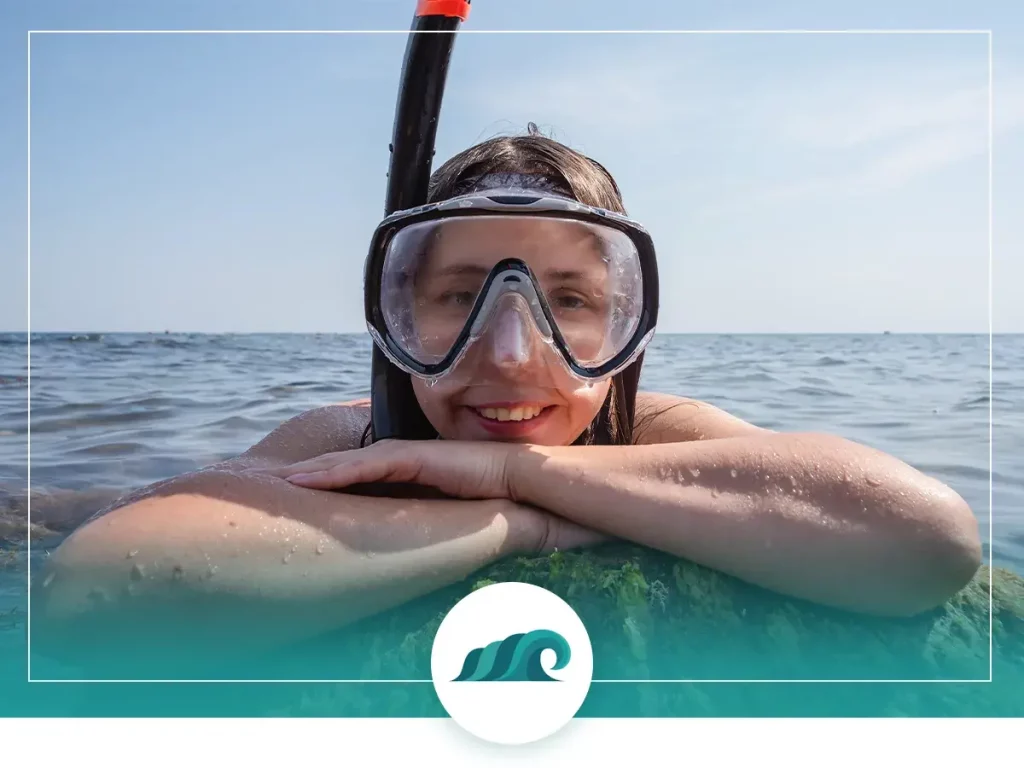
Several methods that don’t carry the expensive cost of other options like prescription masks are available. They can help to improve your vision while snorkeling and are simple enough to do on your own. These methods are not ideal but are severable enough to get you by and are generally more affordable.
Spare Prescription Lenses
While snorkeling goggles that fit over glasses aren’t available, If you have a spare pair of prescription glasses, there is a cheap method you can utilize. Simply removing the lenses from your prescription glasses and gluing them to the inside of your snorkeling mask will work fine as long as they’re securely fastened and aligned.
Magnification Lenses
Another affordable option to substitute a snorkeling mask for glasses is magnifiers. Snorkeling mask magnifiers are commonly used by divers so that they can read video camera screens with ease. In addition, these magnifiers can assist swimmers who use prescription glasses if their blurry vision or vision impairment isn’t too severe. Lens magnifiers are flexible circles that stick to the snorkeling mask itself and can be removed and reused.
In conclusion
Many people with vision impairment have concerns about snorkel diving. While wearing a snorkeling mask over glasses isn’t really feasible, there are many alternatives to overcome this issue. Even if you have trouble seeing, there are many ways you can still enjoy the sights and experience of snorkeling.


